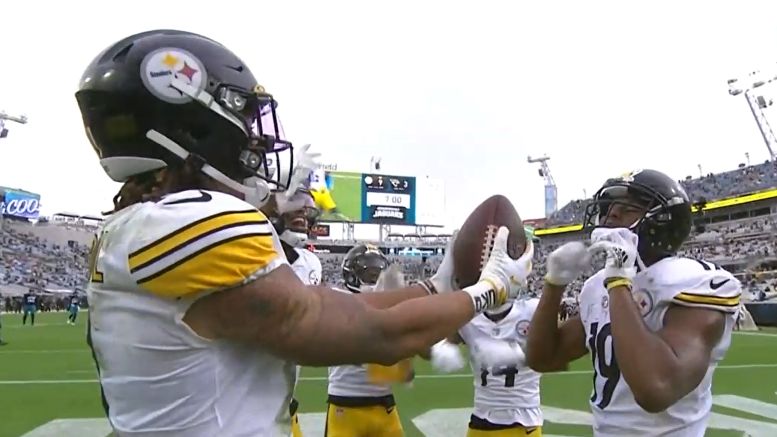Team sports can be tricky to navigate in the era of the athlete. While it is very much appropriate to recognize the players as individuals who have the right to push for what is best for themselves, there is also the global factor of many individuals contributing collective to achieve a common good.
For the most part, teammates support one another in their endeavors to ‘get that bag’, and generally act upon the unspoken rule not to say anything negative about a player who chooses to hold out or use some other negotiating tactic as he tries to get paid, even while everybody ultimately wants to win a championship together.
That is the balance that players like JuJu Smith-Schuster of the Pittsburgh Steelers is facing this year. He knows that it would benefit him this year to see more time playing on the outside to improve his statistical output, and thus his market value, but at the same time, he also wants to win, and recognizes that winning gets you paid, too.
“People want their touches. People want to reach their personal goals on the field”, he told reporters yesterday. “But at the end of the day, if you win out, you win these games, everyone gets paid. You saw it with the Chiefs. The Chiefs won, everybody got paid. Between the head coach to the OC to Patrick [Mahomes] to Travis [Kelce], the O-linemen, everyone’s getting paid. If you go out and win these games, you win the playoffs, win the Super Bowl, I guarantee you that everyone will have a chance to eat”.
Smith-Schuster was an unrestricted free agent this offseason upon the completion of his four-year rookie contract he signed in 2017 as a second-round draft pick. He put up 308 catches for 3,726 yards during that time with 26 touchdowns, but the offers were scarce, largely due to a depleted market.
He ultimately chose to re-sign with the Steelers on a one-year, $8 million contract in the hopes of hitting the market again in 2022 with a much more robust salary cap, which could see the largest year-over-year rise in both total amount and percentage, if everything goes as well as it realistically can.
Hitting 1,000 yards receiving, something he hasn’t done for the past two years, would be a key landmark he wants to hit, for sure. But being a significant contributor to a Super Bowl-winning team is also a major marketable quality.
While he caught 97 passes last season, he only produced 831 yards of offense, largely because he saw an average depth of target of just 5.5, which is just insanely shallow even for a full-time slot receiver. His ‘short’ target percentage of 62.4 was third-most in the NFL last season among qualified receivers. He didn’t even see enough deep and intermediate targets to qualify.








